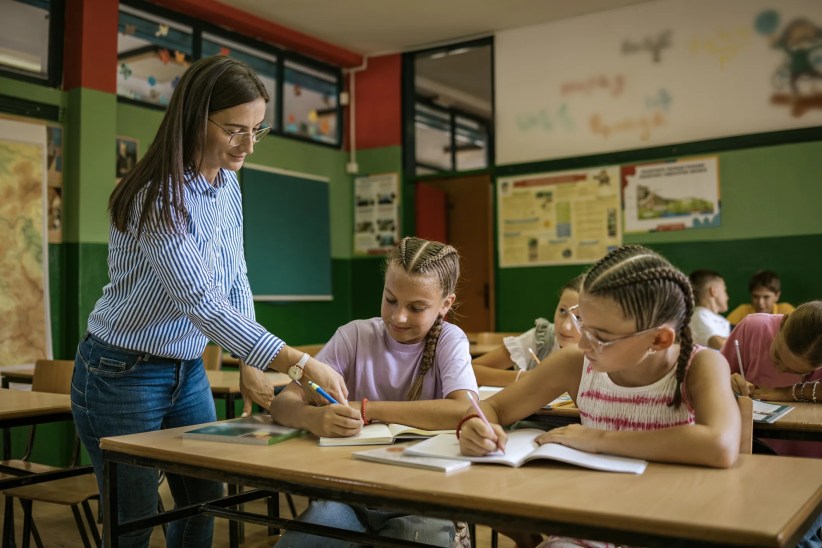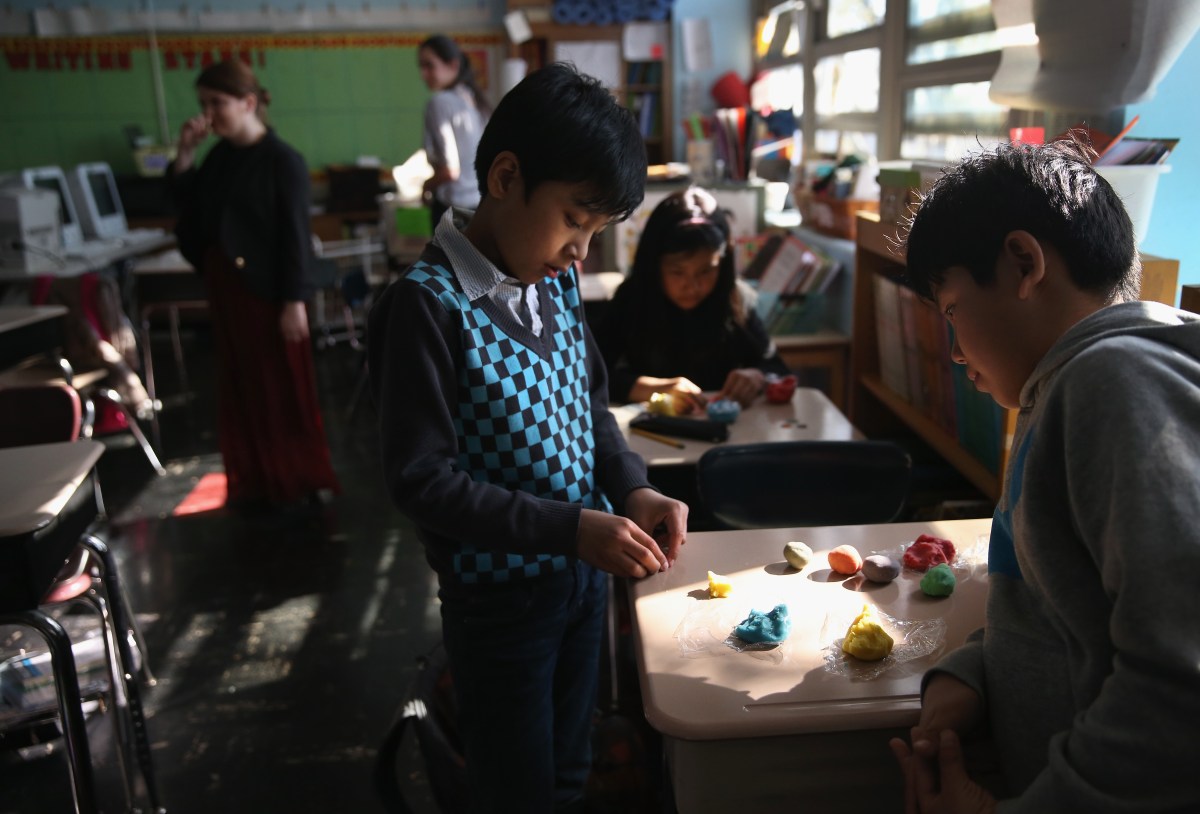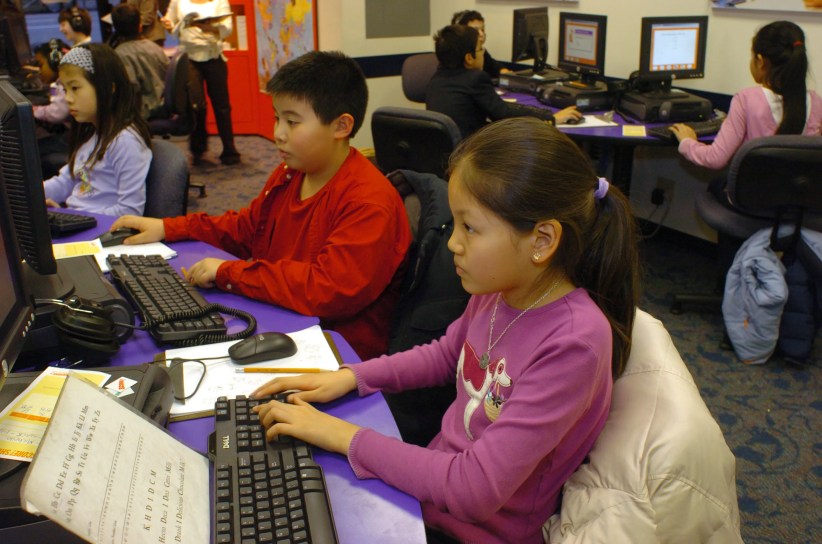Parents within the last two decades have become more open and less self-conscious about discussing their children’s learning disabilities. No one knows that better than Dr. Odey Raviv, a learning specialist with a private practice in Long Island and Manhattan. Besides having worked as a special education teacher and a summer enrichment director in the New York City public school system for many years, Dr. Raviv also holds a doctorate degree in special education.
New York Parenting spoke with Dr. Raviv about some of the recent changes and challenges in the field of special education.
Allison Plitt: There has been an increase in the number of attention deficit hyperactivity disorder diagnoses. Currently, 11 percent of the general student population has been diagnosed with it. Why do you think this diagnosis has risen?
Dr. Raviv: The figures are really moving in such an amazing direction. What we’ve seen is that so many school systems and parents are so concerned with kids who are hyperactive, who can’t stay on task, who can’t sit still, are not able to focus, and not able to get along with their peers.
The teachers are too quick, along with the parents, to have their kids evaluated for ADHD and, unfortunately, many parents are reaching out for medication as a quick solution. There are two types of ADHD. We have the traditional hyperactive child, but ADHD has a second category — a child who is inattentive. Those are the kids who are distracted internally: kids we might consider the day-dreamers, the kids who are looking out the window and can’t initiate their work.
One of the reasons the percentage is up is because of more awareness of ADHD — even more publicity. It’s more widely realized that kids who we thought were just lazy or tuned out — or having emotional issues or seemed just not to care — we found that their brains have processing impediments that don’t permit them to stay on task. They have a tendency to become inattentive and unfocused and that makes it very difficult to keep up with today’s challenging Common Core Curriculum.
Some of those kids do very well on medication, because the medication helps them stay on task.
For some kids with ADHD, however, simply medicating them isn’t the only solution. They need to have some individualized support to teach them how to learn more efficiently, to be less impulsive with their problem solving, to be more inspired to compensate for their deficits.
We have found many kids with ADHD also profit from psychotherapy to deal with a lack of self-esteem, and the stress caused by the challenges of a rigorous curriculum.
Medication alone is not going to give us the changes that we really need. We need to take a complete look at the child. We need an “it takes a village” kind of approach where we’re helping children with their emotions and helping them with their learning. A pill is not going to be the magic formula to change these kids into successful students.
AP: The New York State Common Core Standards Exam has been a source of worry for many parents in terms of the difficulty of its content and its strict grading system. How have parents of children with learning disabilities viewed the test?
DR: There are many parents who are worried about how their children can cope with the increased rigor of the test and a curriculum that is really placing a premium on critical thinking skills and problem solving. A lot of students struggle in that area, even kids in regular classes, because they haven’t had the experiences, the teaching, and the chance to read, write, and problem solve at that very demanding level.
A lot of the prep work that teachers are required to use to teach the Common Core consists of scripted lessons to achieve certain goals and standards. Unfortunately, students with special needs learn differently. They need a lot more remediation. They need enrichment. They need a variety of teaching styles. Most importantly, they need a lot more time to learn the information and the processes to be successful.
Unfortunately, with the Common Core, there is so much pressure to push students through performance standards more quickly and it’s similar to throwing a kid into the deep end of the pool without teaching them how to swim. They’re expected to be on grade level, but, in reality, their evaluations have shown that they are a few years behind — or many years behind in reading and math levels.
Regrettably, what we’ve seen also is that when a lot of kids experience high pressure to get ready for a test, they miss a lot of things — enrichment, art, music — those kinds of activities that can really help kids who don’t do well in traditional academic settings feel better about themselves. Their self-esteem is destroyed.
In the long run, I think it’s really important for kids to feel good about what they’re doing and not feel defeated, because they’re not getting high scores academically. We want to nurture them to be good citizens and be positive people who feel good about themselves.
When kids feel negative and defeated, that’s when they have tendencies to act out. I think we really need to build up their skills more slowly and not put them into a situation where they are destined to fail.
There is also a role for after-school and summer programs. They should have a mix of good ingredients — education, enrichment, and also exposure to things that might help them develop passions — to enable children to compete at a higher level.
We’ve been losing the enrichment programs that kids really love. When the student finds an area they feel great about — be it art or computers or music — that can be a springboard for them to more successful: not only in middle school and high school, but down the road in college, community college, or a technical institute.
I think it’s really on the politicians to budget for educational programs that will back a holistic approach — making our kids more ready to deal with critical thinking and problem solving — and to compete globally.
AP: After students with learning disabilities graduate from high school, what are their chances for success in college?
DR: What’s been great over the last 10 to 15 years is that colleges have done a nice job with making available support services on campus. It’s really hopeful that if a parent and a student are dedicated to finding a college that will meet their individual needs, they probably can do so.
One example is Landmark College in Vermont, which works with kids with dyslexia who can’t read on grade level. With the technology available today, kids have a chance to be able to thrive and succeed at a much higher level than they could even 10 or 15 years ago. So I think it’s a combination of the wonders of the new technology and the realization that there are many kids who could be successful, but it takes a lot of energy finding people who know about these programs.
Sometimes what happens, unfortunately, is that kids are reluctant to use these services, because they are hoping to move on to the next level independently. They’re going to try to do it on their own, and they’re going to break away from who they were and attempt to re-invent themselves.
In high school, if a student receives special support services, the school is going to come to these kids and take them out of class for support, but in college these students have to be willing to self-advocate. At the college level, the schools won’t chase students. They have to be willing to acknowledge that they need support to succeed.
It really takes a lot of determination for these kids to succeed, because when they see some of their fellow students who can do things in half the time, it can be frustrating. They need to have a long-term goal in order to stick with it.
I have seen many kids thrive after struggling with academics for many years. My message, certainly to parents, is: never give up on your child. Provide them with the support and direction that will lead them to success.
Dr. Odey Raviv may be reached at odeyr
Allison Plitt is a freelance writer who lives in Queens with her husband and young daughter. She is a frequent contributor to New York Parenting.






















